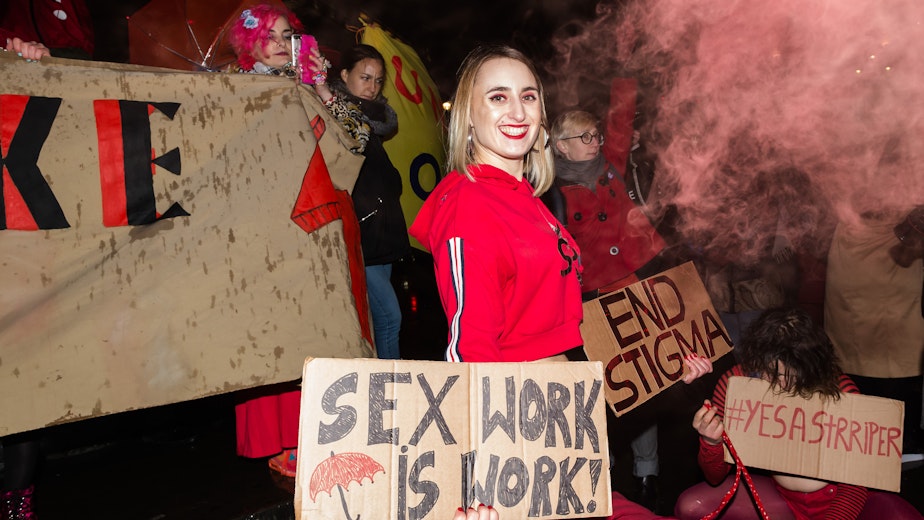The Multiplying Threats Facing Sex Workers Today
By Stacey-Leigh Manuel

Amahle (not her real name), a sex worker and mother of a young daughter living in South Africa, has faced an almost total loss of income since her government imposed a nationwide lockdown in response to the COVID-19 pandemic. Unlike the millions of other South African workers who’ve been negatively affected by the economic freeze, however, Amahle has received no government support in exchange for her lost earnings.
Predictably, she has struggled to pay her rent.
Amahle is not alone. With many governments around the world imposing drastic measures to curb the spread of COVID-19, sex workers have been pushed to the brink of financial desperation. Because sex work is not recognized as a “legitimate” profession, sex workers have been unable to access government relief programs in countries where sex work is criminalized. Without financial and social support, sex workers are slipping through the cracks.
By driving sex work further underground, the COVID-19 pandemic has resulted in violence, harassment, and abuse of sex workers. In Kenya, for example, incidences of violence against sex workers more than tripled during the first month of the pandemic, according to the Kenya Sex Workers Alliance. A sex worker in South Africa—Robyn Montsumi—died in the custody of police in April. Sex workers in South Africa experience systemic human rights violations and outright violence, discrimination, and harassment at the hands of the police at an alarming rate.
Thousands of sex workers have no other option but to continue working, placing their health and lives at risk to support themselves and their families. Driven by financial need, sex workers are more likely to agree to meet with clients they do not feel comfortable with or negotiate safety measures, such as condom use. Sex workers have also reported that clients are more likely to bargain over prices or push for services to be performed without condoms since COVID-19 measures were adopted in their countries.
Stay-at-home orders have also wreaked havoc on the provision of reproductive health services and life-saving treatment for HIV/AIDS, tuberculosis and other infectious diseases. Sex workers in Rwanda, for example, have been unable to afford enough food to survive because of the lockdown.
Sex workers are also increasingly stigmatized by their communities, who perceive them as vectors for the spread of COVID-19. Sex workers—particularly those who are transgender, migrants, or women of color—are vulnerable to over-policing and punitive measures linked to the enforcement of COVID-19 regulations. The pandemic has also created a higher threshold for sex workers to report abuse, which creates a climate of impunity and exacerbates the risk of violence.
It doesn’t have to be this way. In New Zealand, for example, the first country to decriminalize sex work in the world, sex workers were able to access the government’s emergency wage subsidy within days, just like all the other workers in the country whose earnings had fallen because of the pandemic. Moreover, government staff worked closely with sex worker organizations, to ensure that sex workers had access to social support programs, and to define guidelines to return to work safely after the lockdown was eased.
Decriminalization—the removal of criminal penalties for buying and selling sex—is key to protecting sex workers from abuse and exploitation. It is also a crucial step in improving the health of sex workers, their families, and their communities. This is especially true during a global pandemic. These measures would help sex workers like Amahle receive a basic income, services, and the ability to provide for her family.
The COVID-19 pandemic demonstrates just how urgent it is for governments to recognize sex work as a form of labor and to provide basic services and protection to the millions of people working in the sex industry.
Stacey-Leigh Manuel is a program officer in sexual and reproductive health and rights with the Open Society Public Health Program.

